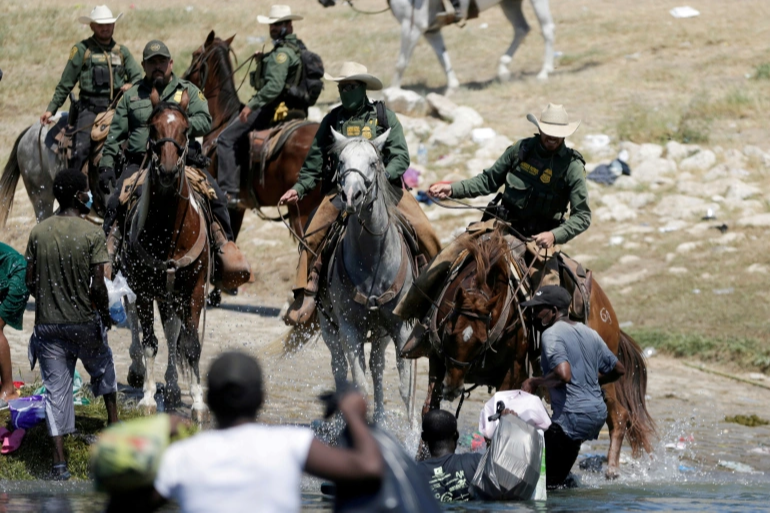
Authorities plan to remove 12,000 migrants camped at the bridge on the southern border within the week
Del Rio, September 20 (RHC)-- The United States has begun forcibly flying thousands of mostly Haitian migrants on the border between Texas and Mexico and plans to expel about 12,000 more over the next week.
On Sunday, more than 320 migrants who had been living in a camp -- under a bridge that connects Del Rio, Texas with Ciudad Acuna, Mexico -- arrived in Haiti’s capital Port-au-Prince on three flights.
U.S. authorities said the flights included some of the 3,300 migrants moved from under the bridge since Friday, and the government aims to “quickly” process 12,662 others living in the camp over the next seven days.
Authorities have allowed some to seek asylum, but swiftly expelled others under a controversial public health rule. Haitian authorities said six more flights were expected on Tuesday.
“I left Haiti to go find a better future,” Stephanie, who declined to provide her surname, told Reuters news agency, after detailing how she was taken from under the bridge by U.S. agents to a detention facility before being loaded onto a flight to Haiti.
Many of the migrants who gathered under the bridge fled in the wake of the 2010 earthquake that devastated the Caribbean nation, often first heading to Chile or Brazil. They began moving north in 2016 and 2017 as jobs in South America became scarce following the Rio Olympics.
Stephanie described Haiti’s economy as unable to provide opportunities for scores of youth such as herself. “If jobs could be created, we would never have exposed ourselves to this misery in other countries,” she said.
A 28-year-old woman, who identified herself only as Jeanne, told AFP news agency she, her husband, and their three-year-old son spent two months and $9,000 travelling through South and Central America and Mexico on their way to the United States.
“It’s an inexplicable thing. No one can really explain the horror,” Jeanne said of the journey. “If I had known what I was going to live through, I would have never made the trip.” She added she would now move to a gang-controlled neighbourhood on the outskirts of Port-au-Prince with her in-laws, with the recent assassination of Haitian President Jovenel Moise underscoring just how precarious security in the country remains.
“Imagine, some guys were able to enter the president’s house and kill him in his room,” she said. “And me? I can’t be comfortable.”
The clearing of the camp appears to represent one of the largest-scale expulsion of migrants in decades, with the U.S. using the coronavirus-related health order known as Title 42 to immediately expel those who gathered under the bridge without giving them an opportunity to seek asylum.
The order was introduced in March 2020 under former President Donald Trump, but has been regularly used by the administration of President Joe Biden. Unlike Trump, the Biden administration has exempted unaccompanied minors from the rule.
The only obvious parallel for such a mass expulsion without an opportunity to seek asylum was in 1992 when the coastguard intercepted Haitian refugees at sea, Yael Schacher, senior U.S. advocate at Refugees International, whose doctoral studies focused on the history of US asylum law, told The Associated Press news agency.
On Sunday, Alejandro Mayorkas, head of the U.S. Department of Homeland Security (DHS), sought to dispel concerns the deportations would further exacerbate the ongoing economic and crime crises in Haiti.

